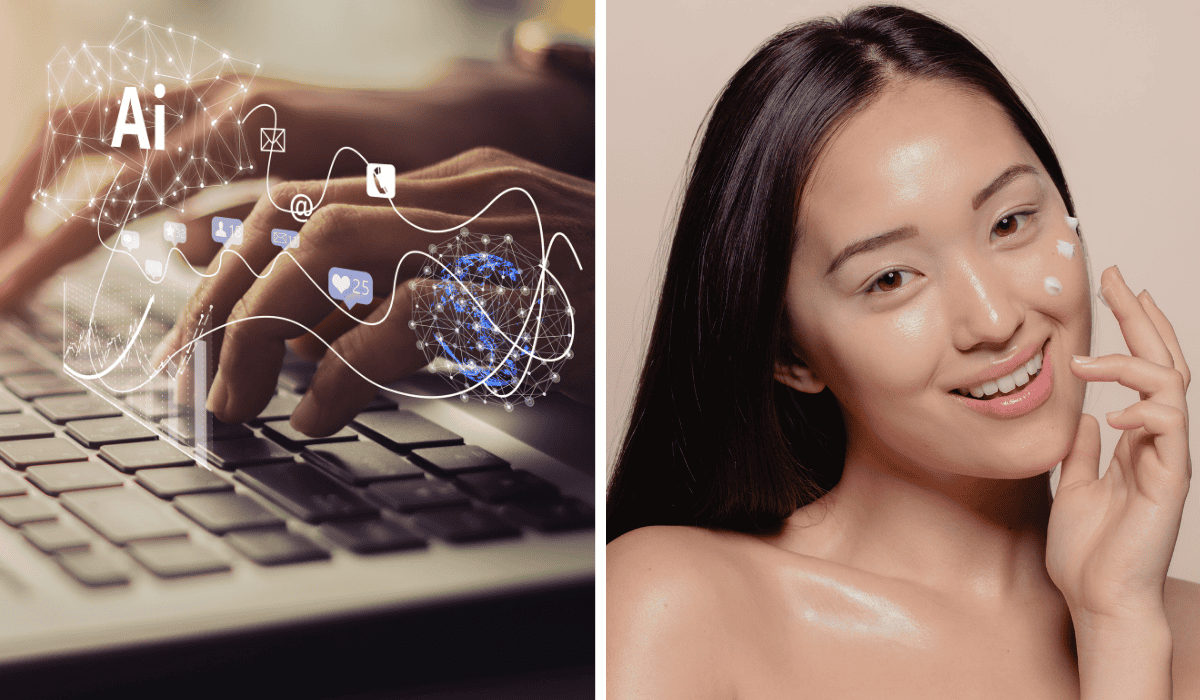
©Urupong and ©Jacob Lund via Canva.com
Should Beauty Brands Say ‘No’ To Using AI-Generated Models?
Dove has become the first beauty brand to commit to never using AI-generated imagery to represent “real people” in its advertising. Rather, the Unilever-owned skincare brand will continue to use real photos of women, while promoting more diverse AI-generated images based on prompts about beautiful women.
The pledge to forego AI comes as Dove celebrates the 20th anniversary of its often-lauded Real Beauty campaign. At the time, Dove began featuring unedited, underrepresented bodies and people in advertising and set a goal to “dismantle toxic beauty standards,” helping spark the body positivity movement.
Marking the anniversary, Dove commissioned a survey in late 2023 of over 33,000 individuals in 20 countries as part of its 2024 “Real State of Beauty” study that found that while women felt better represented in advertising, beauty stereotypes continue to harm women’s self-esteem due in part to social media.
Citing predictions by AI experts that up to 90% of online content will be AI-generated by 2025, Dove particularly called out AI as a new “threat” to women’s well-being.
“We’ll no longer be wondering whether an influencer has doctored their images, we’ll be asking ourselves whether the influencer is a real person at all,” said Alessandro Manfredi, Dove’s global chief marketing officer, in the study. “We will be confronted with a reality where people will be comparing their appearance to images and videos of artificial bodies.”
Dove’s survey already showed how AI is impacting how women feel about themselves, including 39% of women polled globally indicating they “feel pressure to alter their appearance because of what they see online, even when they know it’s fake or AI-generated.”
On the positive side, Dove said AI has the “potential to foster creativity and access to beauty,” citing the finding in the survey that 24% of women and 41% of girls in the U.S. agreed that being able to create different versions of yourself using AI is empowering. However, the brand said there’s “still an urgent need for greater representation and transparency in content created by AI.”
Beyond its pledge to never use AI in its advertising to portray real people, Dove introduced new “Real Beauty Prompt Guidelines” that provide instructions for creating images using generative AI programs that are representative of “real beauty.” A new ad campaign, “The Code,” showed how AI creates images based on descriptions such as “the most beautiful woman in the world” versus the more realistic images created by Dove’s prompt tool.
Showing the potential of artificial intelligence in ad imagery, Levi’s last year began testing customized AI-generated models with the aim of multiplying the number and diversity of models that customers can see online. At the time, Levi’s said shoppers on Levi.com typically only see one model for each product and indicated the move supported its diversity, equity, and inclusion goals.
Lalaland.ai, Levi’s partner in the project, said using AI-generated models can also create content 90% faster than photoshoots and eliminate the need for physical clothing samples for a sustainability benefit.
Levi’s received backlash to the test, with many critics wondering why Levi’s wouldn’t simply hire real diverse models over generating fake ones. Several articles have been published over the last year discussing artificial intelligence’s threat to the modeling industry.
Discussion Questions
Do you see a strong consumer backlash developing over the use of AI-generated fashion models for online imagery and in advertising campaigns?
Do you see more upsides or downsides to using AI-generated models?
